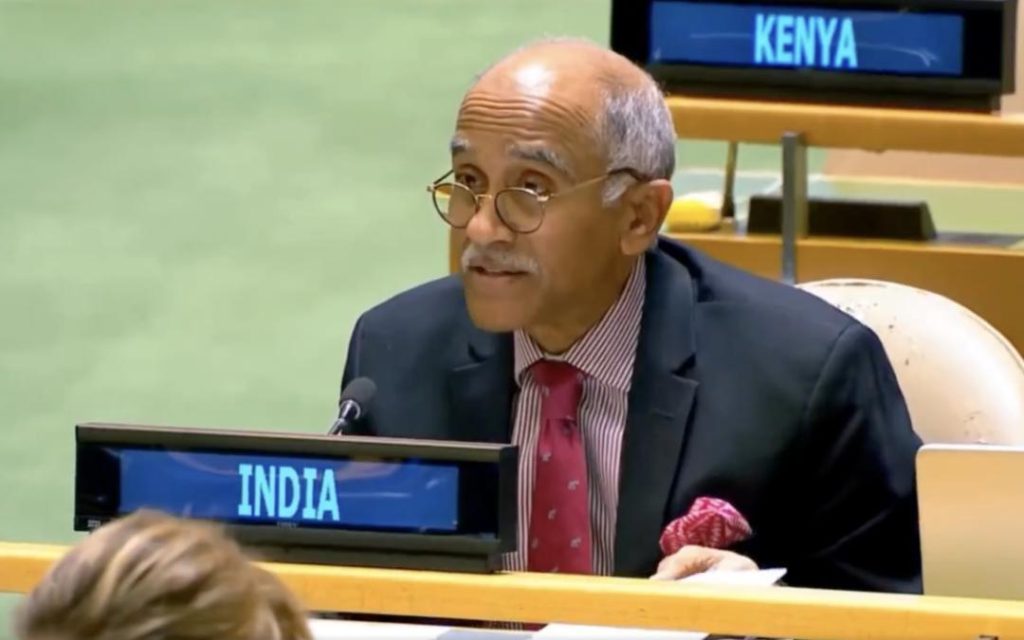
Pak’s fanatical mindset is well known: India on Pak’s reference to J&K at UN
On September 25, 2022, the United Nations General Assembly witnessed a heated debate between India and Pakistan over the latter’s reference to Jammu and Kashmir. India’s Permanent Representative to the UN, Parvathaneni Harish, strongly criticized the statement made by Pakistan’s former Foreign Secretary, calling it “unjustified”. Harish’s remarks were a clear indication of India’s displeasure with Pakistan’s continued attempts to internationalize the Kashmir issue.
In his statement, Harish highlighted the fact that Pakistan’s references to Jammu and Kashmir at the UN are nothing but a futile attempt to validate its claim over the region. He emphasized that such frequent references will not legitimize Pakistan’s claim or justify its practice of cross-border terrorism in Kashmir.
India’s Permanent Representative to the UN also drew attention to Pakistan’s “fanatical mindset” when it comes to Jammu and Kashmir. He stated that the world is well aware of Pakistan’s obsession with the Kashmir issue, which has led to decades of conflict and terrorism in the region. Harish’s comments were a direct challenge to Pakistan’s narrative on Jammu and Kashmir and its continued efforts to internationalize the issue.
Pakistan’s reference to Jammu and Kashmir at the UN is not a new phenomenon. Over the years, Pakistan has consistently used the platform to accuse India of human rights violations in the region and to demand that the international community intervene to “resolve” the Kashmir dispute. However, India has always maintained that Jammu and Kashmir is an integral part of the country and that the issue is a bilateral matter that requires a peaceful and democratic solution.
India’s stance on Jammu and Kashmir is clear. The region has been a part of India since its independence in 1947, and the country has consistently maintained that the issue is a matter of national integrity and security. India has also made it clear that any solution to the Kashmir dispute must be based on the principles of self-rule, democracy, and human rights.
Pakistan, on the other hand, has a different narrative on Jammu and Kashmir. The country has consistently maintained that Jammu and Kashmir is a disputed territory that belongs to Pakistan and that India has illegally occupied it. Pakistan has also accused India of human rights violations in the region and has demanded that the international community intervene to “resolve” the Kashmir dispute.
Pakistan’s reference to Jammu and Kashmir at the UN is often seen as a diplomatic ploy to internationalize the issue and to put pressure on India to make concessions. However, India has consistently rejected Pakistan’s efforts to internationalize the issue, maintaining that it is a bilateral matter that requires a peaceful and democratic solution.
In recent years, India has taken several steps to counter Pakistan’s narrative on Jammu and Kashmir. The country has made significant progress in implementing its policy of “integration and development” in the region, which aims to promote economic development, social empowerment, and human rights in Jammu and Kashmir. India has also taken steps to strengthen its security apparatus in the region, which has helped to contain the spread of terrorism and violence.
Despite these efforts, Pakistan continues to reference Jammu and Kashmir at the UN and to accuse India of human rights violations in the region. India’s Permanent Representative to the UN, Parvathaneni Harish, has made it clear that such references will not be tolerated and that India will continue to defend its position on the issue.
In conclusion, Pakistan’s reference to Jammu and Kashmir at the UN is a clear indication of the country’s continued obsession with the Kashmir issue. India’s Permanent Representative to the UN, Parvathaneni Harish, has rightly criticized Pakistan’s statement, calling it “unjustified” and highlighting the country’s “fanatical mindset” when it comes to Jammu and Kashmir. India will continue to defend its position on the issue and will not be swayed by Pakistan’s attempts to internationalize the dispute.
Source:



